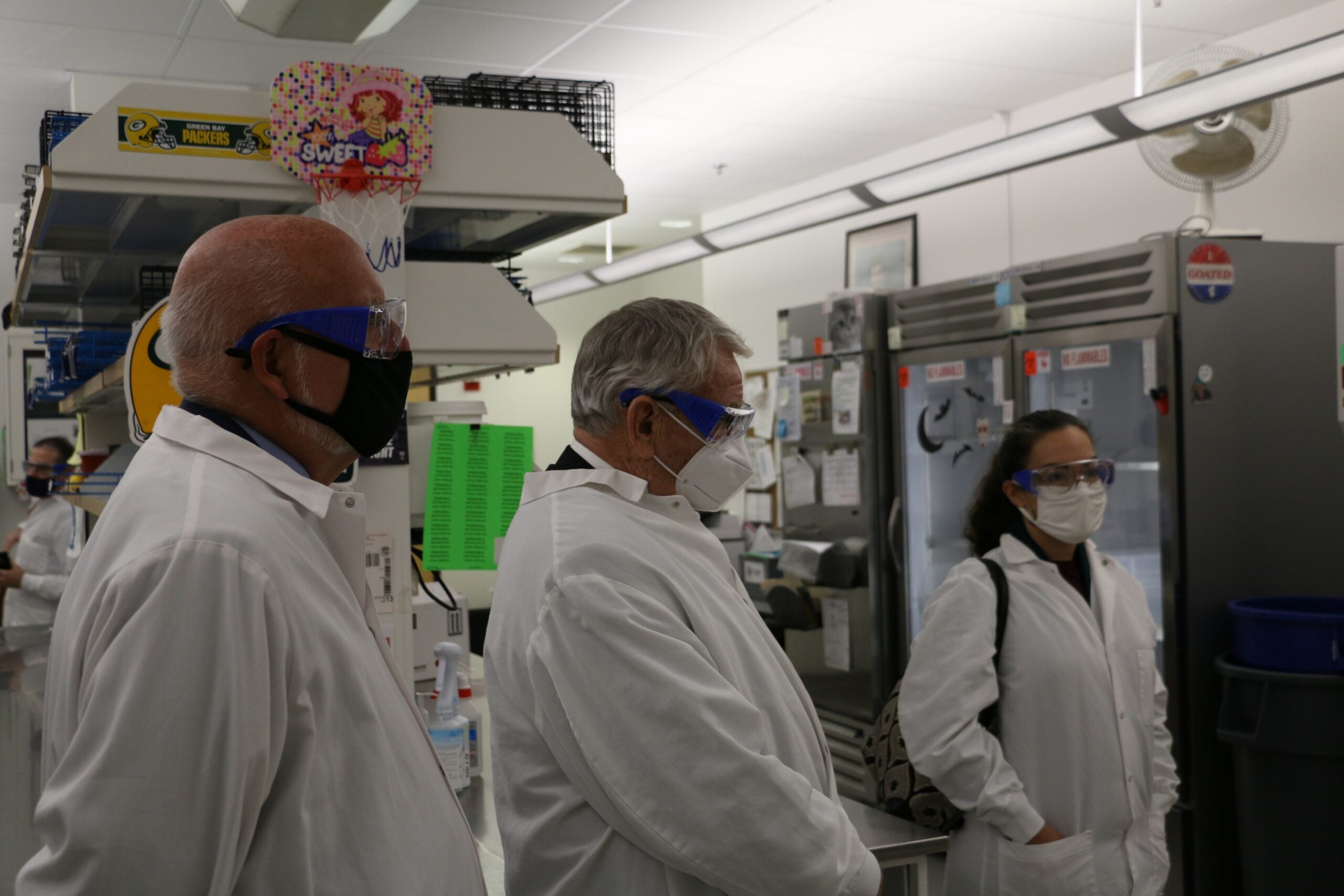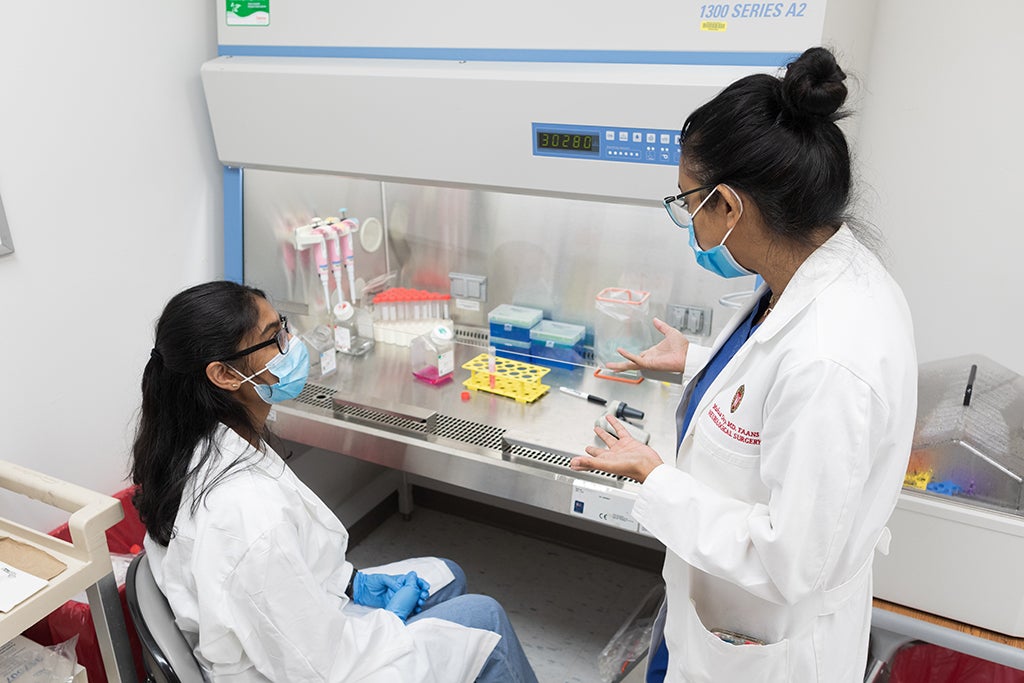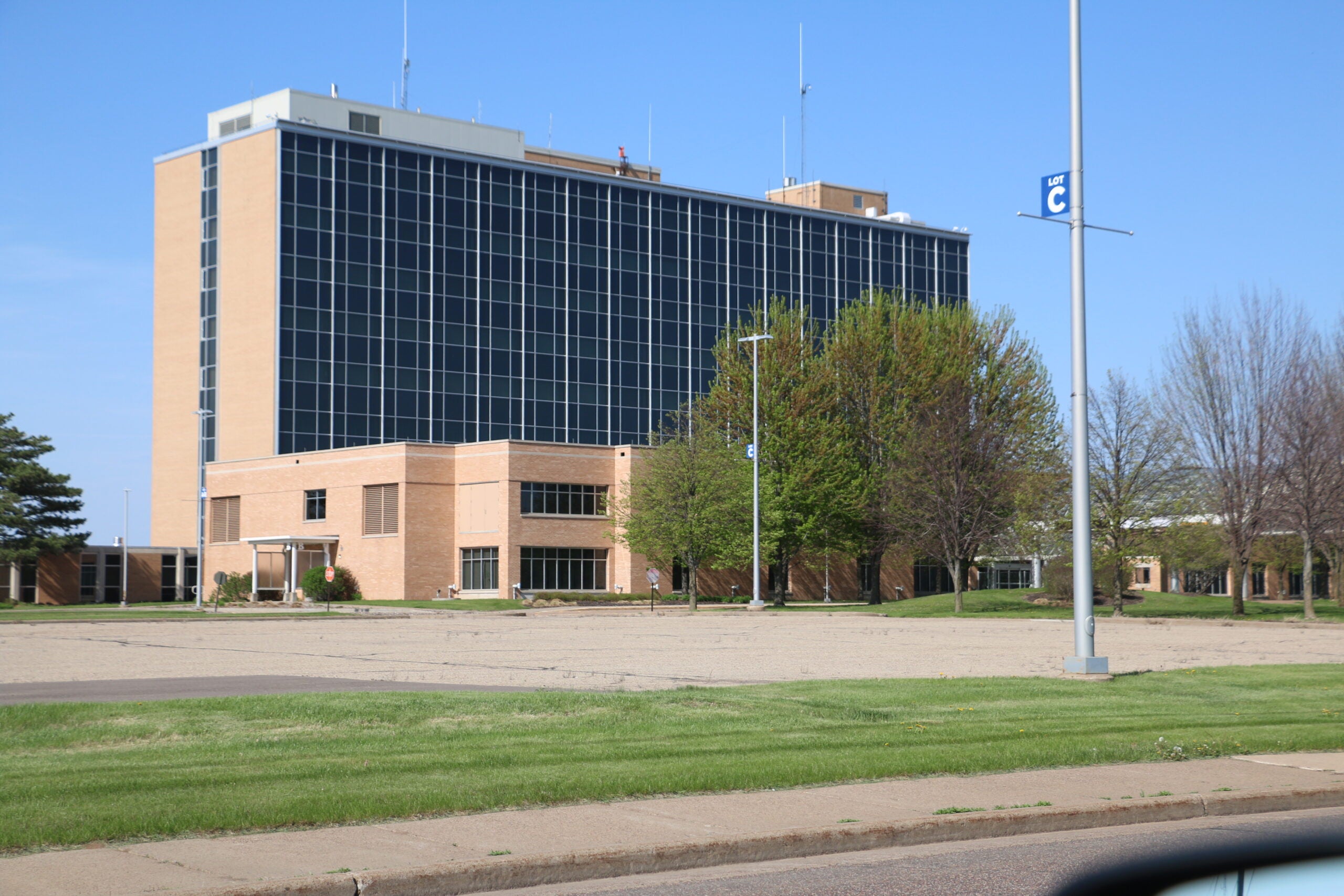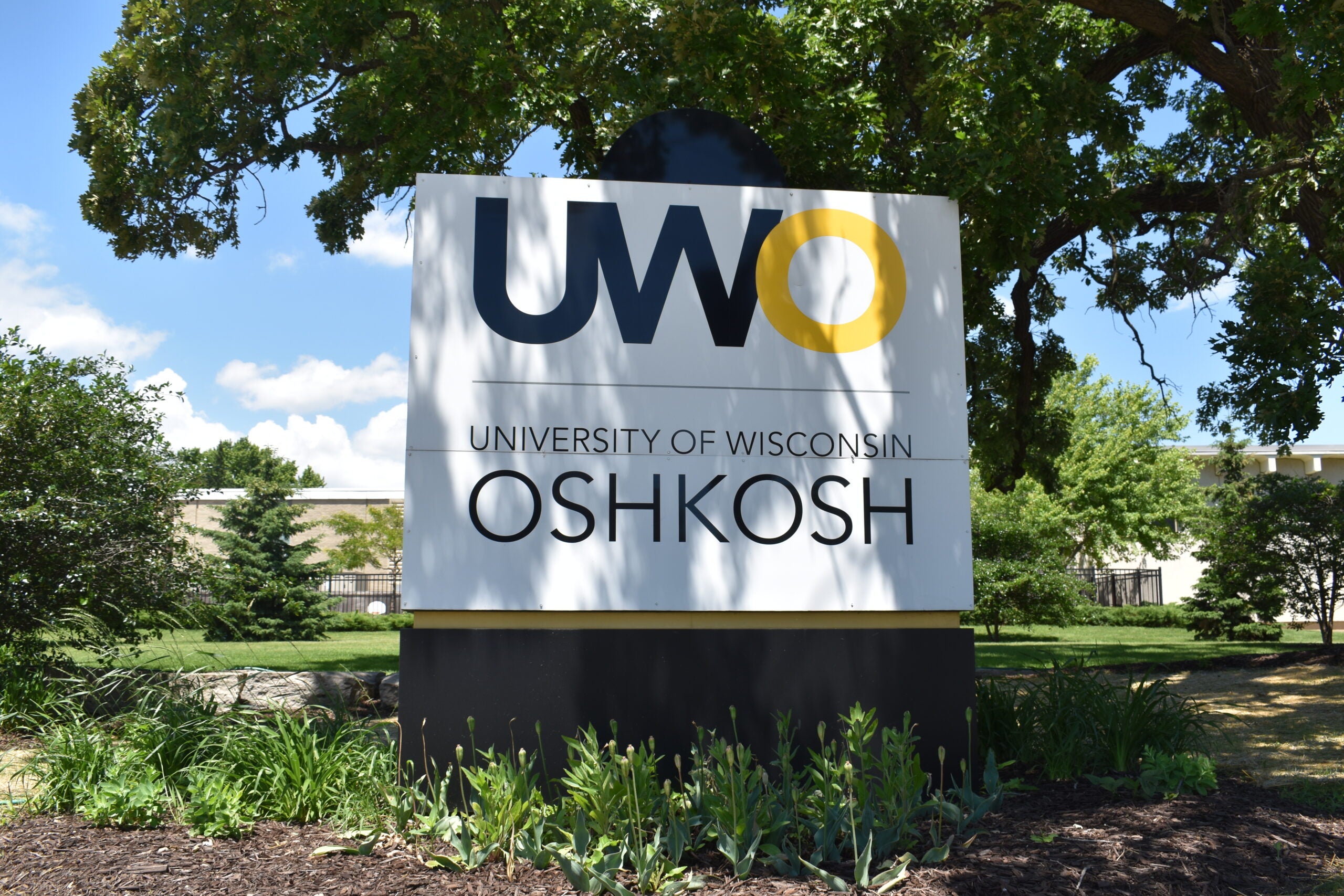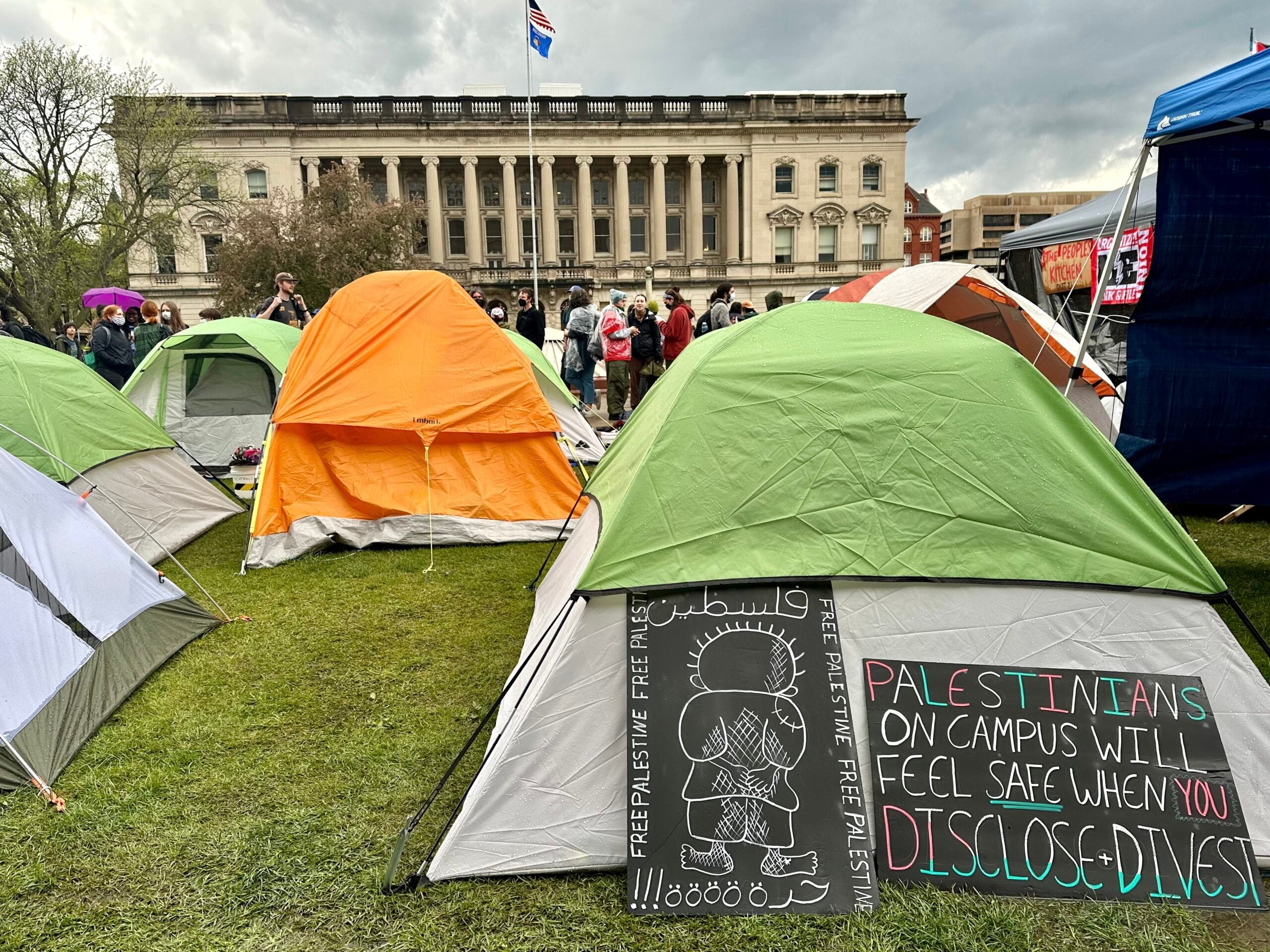Centers for Disease Control and Prevention Director Robert Redfield toured the University of Wisconsin Veterinary Diagnostic Laboratory on Thursday, praising UW campuses and colleges around the nation for tamping down outbreaks of COVID-19 while cases rise in some surrounding communities.
Redfield and UW System Interim President Tommy Thompson spoke with staff at the UW-Madison veterinary lab, which processes the majority of thousands of COVID-19 tests each week. He said students at the UW System and systems in other states like South Carolina have set an example for how the COVID-19 pandemic can be controlled by being vigilant about wearing face coverings, hand washing and maintaining proper distance from other individuals.
“One of our goals right now is to take what you’ve learned on college campuses to really get a handle on what I call the silent epidemic or the asymptomatic infection, which is a majority of the infections in young people,” said Redfield. “What’s the strategy to be able to take that and get it operationalized broadly throughout the nation?”
News with a little more humanity
WPR’s “Wisconsin Today” newsletter keeps you connected to the state you love without feeling overwhelmed. No paywall. No agenda. No corporate filter.
Redfield said another lesson to be learned is how regular, strategic testing for COVID-19 not only identifies positive individuals but also reinforces behavior changes like proper masking and distancing.
UW-Madison offers free COVID-19 testing to anyone on campus, but has also mandated regular tests for students living in residence halls and regular voluntary testing for some groups living off campus.
Other UW campuses are using antigen tests, which detect proteins in the coronavirus, to test dorm residents at least every two weeks. Antigen tests can provide results within 15 minutes, but can also be less accurate than the types of testing happening at UW-Madison.
Outside of UW campuses, hospitals and local health departments are conducting tens of thousands of COVID-19 tests although they’re voluntary and regular screenings are not required.
Thompson said students have been “extremely good” about following mask and distancing policies and campuses are processing “five times” as many tests as the state overall.
At the beginning of the fall semester, there were significant spikes of COVID-19 infections at many UW campuses. UW-Madison, UW-La Crosse and UW-River Falls moved classes online for two weeks and quarantined dormitories to tamp down outbreaks. Now, positive rates at those campuses are below 5 percent.
Redfield’s visit to Wisconsin came during a week of new COVID-19 records that included new highs for daily deaths and positive cases, as well as the highest seven-day average for new cases since the beginning of the pandemic.
Redfield was asked what impact lawsuits that could potentially end Wisconsin’s mask mandate and occupancy restrictions for bars and restaurants could have on the state’s COVID-19 response. He didn’t comment on the lawsuits specifically, but said masks have shown to be effective at combating the virus regardless of whether they’re mandated or not.
“So, I would just tell you and others not to get in the political debate about mask or no mask, mandate or no mandate and get into the climate that it’s personal responsibility for everyone to embrace masks as their role to protect their family, their community, their loved ones,” Redfield said.
But Redfield said he thinks “it’s time to stay away from bars” and encouraged restaurants and patrons to keep them from getting crowded.
Redfield also said with the Thanksgiving holiday coming up, families should wear face masks and physically distance if they’re hosting people from outside their households.
Wisconsin Public Radio, © Copyright 2025, Board of Regents of the University of Wisconsin System and Wisconsin Educational Communications Board.

